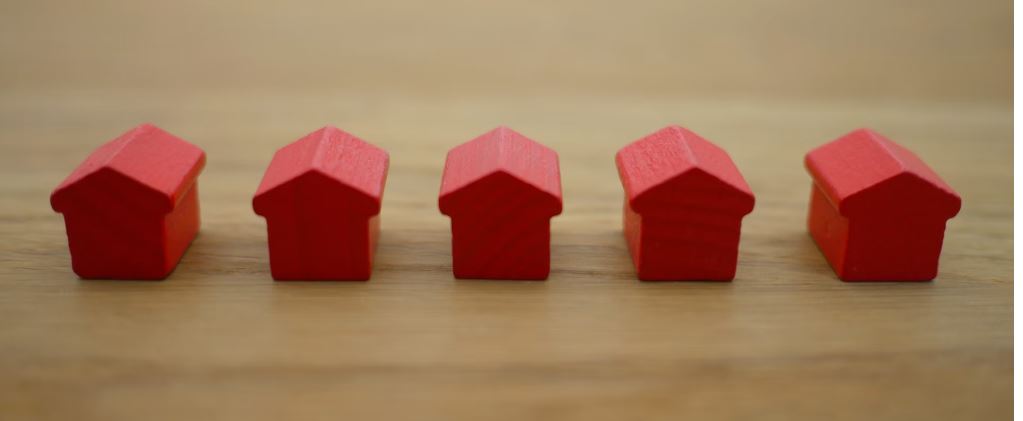Homeowners insurance acts as a protector for your house, your possessions, and your financial security.
In this detailed guide, we’ll explore homeowners’ insurance thoroughly, delve into its importance, examine coverage options, and discover how to make the most of this crucial safeguard.

Understanding Homeowners Insurance
It’s a complete coverage package intended to protect your house, your belongings, and your financial security from unplanned disasters or events. It’s not only about protecting your material possessions; it’s also about giving you peace of mind.

What Does Homeowners Insurance Cover?
Homeowners insurance offers protection in several key areas:
1. Dwelling Coverage: This facet covers the physical structure of your home, including walls, roof, floors, and built-in appliances. It ensures that you can repair or rebuild your home if it’s damaged or destroyed by covered events.
2. Personal Property Coverage: This extends protection to your personal belongings, such as furniture, electronics, clothing, and jewelry. It’s about safeguarding the items that make your house a home.
3. Liability Protection: Homeowners insurance also provides liability coverage, which shields you if someone is injured on your property or if you accidentally damage someone else’s property. It can help cover legal expenses and settlements in such situations.
4. Additional Living Expenses: If your home becomes temporarily uninhabitable due to a covered loss, this coverage assists with expenses related to temporary living arrangements, such as hotel stays and meal costs.
5. Medical Payments: If a guest sustains an injury within your home, regardless of fault, this coverage can help with their medical expenses.
The Importance of Homeowners Insurance
Now that we’ve clarified what homeowners’ insurance encompasses, let’s explore why it’s a vital investment for homeowners:
1. Protection Against Financial Loss: Your home is likely one of your most significant investments. Homeowners insurance shields you from the financial turmoil that unexpected events like fires, storms, or theft can bring. It ensures that you can rebuild your life without enduring overwhelming expenses.
2. Lender Requirement: If you have a mortgage on your home, your lender typically mandates homeowners’ insurance. It protects their investment in your property.
3. Beyond safeguarding your home, homeowners’ insurance plays a vital role in protecting your financial security. In case you or a family member is sued for causing property damage or personal harm, it serves as a crucial safety net to ensure your financial stability.
4. Peace of Mind: Knowing that you have comprehensive coverage in place brings peace of mind. You can rest assured that your home and belongings are safeguarded.
Types of Homeowners Insurance Policies
Homeowners insurance has a variety of options to consider. It’s not a one-size-fits-all solution, and finding the right coverage for your needs involves gaining a deep understanding of these possibilities.
1. HO-3 (Special Form) Policy: This is the most prevalent type of homeowners insurance policy, providing coverage for both your dwelling and personal property against all perils except those specifically excluded. It’s a comprehensive option.
2. HO-1 (Basic Form) Policy: This represents a basic and more limited policy that typically covers a narrow set of perils, such as fire, lightning, windstorms, and vandalism.
3. HO-2 (Broad Form) Policy: This policy type offers a broader range of peril coverage than HO-1 but isn’t as comprehensive as HO-3.
4. HO-5 (Comprehensive Form) Policy: HO-5 policies provide extensive coverage for both your dwelling and personal property. They resemble HO-3 but often include more coverage for personal belongings.
5. HO-6 (Condo Insurance): Tailored for condominium owners, HO-6 insurance covers personal property, liability, and improvements to the unit.
6. HO-4 (Renters Insurance): If you’re renting a home or apartment, this policy type covers your personal belongings and liability but excludes coverage for the structure itself.
7. HO-8 (Older Home) Policy: Designed for older homes, HO-8 policies typically cover the actual cash value rather than the replacement cost of the dwelling.
Factors Impacting Homeowners Insurance Premiums
The cost of homeowners’ insurance can vary widely based on several factors:
1. Location: Your home’s geographic area plays a significant role in determining your premium. Areas prone to natural disasters or high crime rates may have higher premiums.
2. Dwelling Value: The replacement cost of your home directly impacts your premium. A larger, more valuable home will typically result in a higher premium.
3. Deductible: The amount you’re willing to pay out of pocket before your insurance kicks in affects your premium. A higher deductible usually results in a lower premium.
4. Coverage Limits: The amount of coverage you choose for your dwelling and personal property will impact your premium. Higher coverage limits mean higher premiums.
5. Home Security: Homes with security systems or safety features like smoke detectors and fire alarms may qualify for discounts on their premiums.
6. Claims History: If you have a history of making frequent claims, your premium may be higher.
Making the Most of Your Homeowners Insurance
To ensure you’re getting the most out of your homeowners’ insurance, consider the following tips:
1. Review and Update: Regularly review your policy to ensure it still aligns with your needs. Update it as your circumstances change, such as renovations or additions to your home.
2. Shop Around: Don’t settle for the first policy you come across. Shop around and compare quotes from different insurers to find the best coverage at the most competitive rates.
3. Bundle Your Policies: Many insurance companies offer discounts if you bundle your homeowners insurance with other policies like auto insurance.
4. Raise Your Deductible: If you can afford a higher deductible, it can significantly lower your premium.
5. Home Maintenance: Regularly maintain your home to prevent losses. This includes addressing maintenance issues promptly and implementing safety measures.
Conclusion
Homeowners insurance serves as a pillar of security for your house, your belongings, and your financial future, in addition to serving as a safety net for your finances. It’s an investment in mental stability and a defense against unforeseen occurrences in life. Choose the best home insurance for your requirements, check and update it frequently, and take measures to reduce your rates to get the most out of your coverage. You can do this to feel secure in the knowledge that your beloved sanctuary is well-guarded.
FAQs
- What does apartment insurance cover?
It protects your possessions, liability, and unintentional interior damage in your leased apartment. - Do landlords provide apartment insurance?
No. Landlords only cover the structure; your possessions are your responsibility. - Is apartment insurance expensive?
Not at all. Many plans come in at less than the cost of a daily cup of coffee. - Does it cover theft?
Yes. Most policies cover you from robbery both inside your flat and occasionally even outside. - Can roommates share apartment insurance?
Some businesses allow it, but every individual is safer with their own policy.



